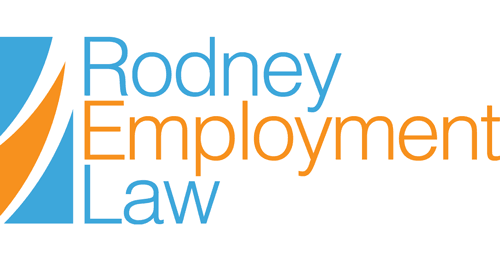Employment Standards Act Amendment – June 2, 2020
Reg. 228/20, Infectious Disease Emergency Leave
On May 29, 2020, the Ontario Government passed a Regulation under the Ontario Employment Standards Act, 2000 (the “ESA”) which confirms that, among other things, temporary reductions and/or changes in hours/wages due to COVID-19, or temporary layoffs due to COVID-19 that commenced on or after March 1, 2020 will not trigger constructive dismissal claims or the deemed termination and severance provisions under the ESA.
Instead the Regulation (O.Reg. 228/20) provides that instead of employees being placed on temporary layoff according to the current provisions of the ESA, they will be considered on “Infectious Disease Emergency Leave” during the “COVID-19 Period”. This ensures that employers are not obligated to terminate employees after the 13-week ESA temporary layoff periods have expired. This Regulation applies retroactively to March 1, 2020 and will end six (6) weeks after the State of Emergency ends.
Why did the Government pass this Regulation?
This development is very beneficial for Ontario employers, many of whom are struggling economically during the current pandemic. This Regulation, which was passed quietly on Friday evening, essentially confirms that the provincial government believes that the COVID-19 Pandemic will last far beyond the 13-week temporary layoff period under the ESA. By implementing the Regulation, they are providing greater flexibility to Ontario employers by mitigating the significant financial impact that would have resulted from the deemed terminations which would have occurred, if the temporary layoffs had exceeded the 13-week threshold for reasons beyond the control of employers.
Summary of Key Points in the Regulation
1. Where Hours/Wages are Reduced and not on Temporary Layoff
- Under the ESA, employers are permitted to temporarily layoff an employee without it being considered a termination for a period of up to 13 weeks within a 20-week period or less than 35 weeks in a 52-week period if the employer agrees to, among other things, continue benefits through the layoff period;
- If a temporary layoff exceeds either the 13-week or 35-week period it results in a deemed termination triggering termination and/or severance pay (if applicable);
- However, Regulation 228/20 confirms if an employer has had to reduce hours and/or wages for reasons related to COVID-19 on or after March 1, 2020, it will NOT be deemed a temporary layoff and will not trigger the “deemed termination” provisions under the ESA.
2. Where Hours/Wages are Reduced and not a Constructive Dismissal
- There is a general principle in Employment Law that absent specific language in an employment agreement, any significant reduction in hours and/or wages among other things may result in a “constructive dismissal” given that the employer has changed a “fundamental” term and condition of employment;
- With the Pandemic, this would apply under the ESA and if successful would trigger the “deemed termination” provisions resulting in termination and severance pay (if applicable);
- However, Regulation 228/20 confirms if an employer has had to reduce hours and/or wages for reasons related to COVID-19 beginning March 1, 2020, it will NOT be considered a constructive dismissal under the ESA.
3. Employees are considered on Leave of Absence under the Emergency Leave: Declared Emergencies and Infectious Disease Emergencies (Regulation 228/20)
- Employees are considered to be on an unpaid leave of absence under the Emergency Leave: Declared Emergencies and Infectious Disease Emergencies provisions of the ESA as opposed to temporary layoff;
- The “COVID-19 Period” is defined as the period beginning on March 1, 2020 and ending on the date that is six (6) weeks after the day that the declared State of Emergency ends; and
- This new Regulation does not apply to those employees who:
- are laid off for 35 weeks or more in any period of 52-weeks;
- were laid off prior to March 1, 2020 and/or were not laid off for COVID-19 related reasons; or
- were terminated or constructively dismissed, and the employee resigned within a reasonable time prior to May 29,
Practical Implications for Employers
- Employers will have flexibility to maintain the current employment relationship during this period of uncertainty and will be relieved of the financial burden of termination and severance (if applicable) obligations;
- Employers will be able to make longer term business decisions affecting their current work environment rather than trying to bypass the deemed termination provisions of the ESA with short-term solutions;
- Employers will be able to mitigate their risk against a potential constructive dismissal complaint under the ESA by an employee whose hours and/or wages were reduced or who were temporarily laid-off; and
- It should be noted that while the new Regulation limits the ability to claim constructive dismissal under the ESA, it does not necessarily prevent an employee from claiming constructive dismissal under the Common Law in the event of a significant reduction in hours and/or wages.
